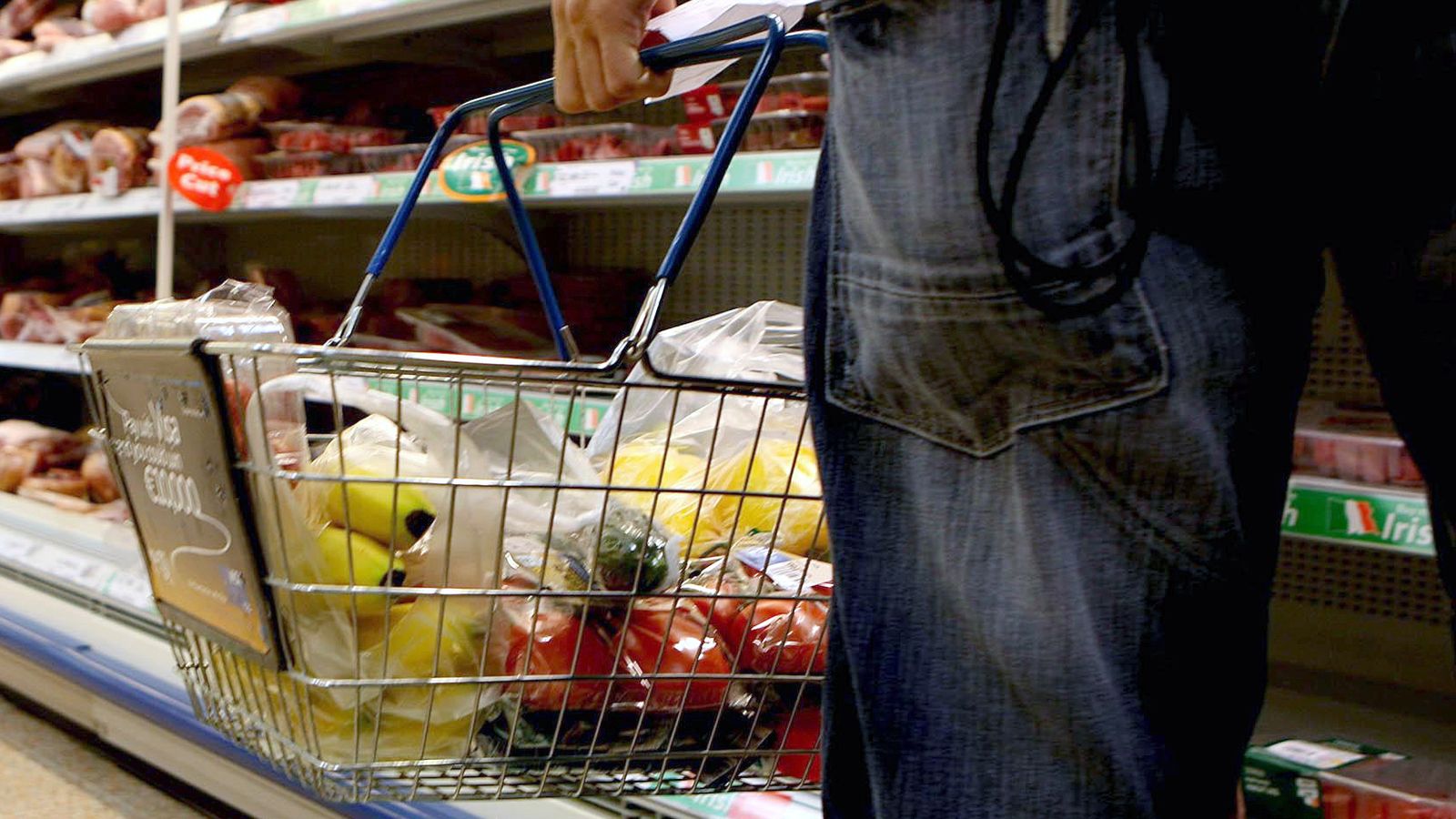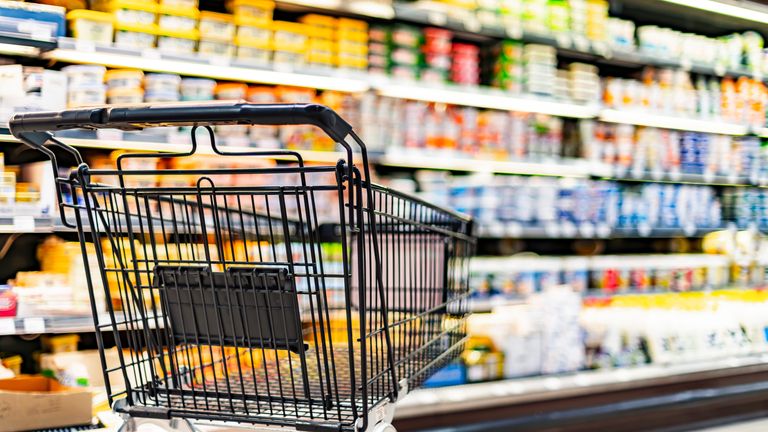Having made tackling inflation a key policy aim, ministers are under pressure to get a grip on food prices, which are still rising at a robust pace.
Among the proposals being considered is a cap on the price of basic food items.
The British government is not the first to weigh up such a policy. Hungary and Croatia have already implemented a cap and their counterparts in Italy are also coming under pressure to do the same.
However, supermarkets in Britain are adamant that it won’t work here.
They point to weakening profits and tight margins. Speaking to Sky News, Stuart Rose, the chairman of Asda, described it as a “backward-looking idea”.
Instead, he said supermarkets offered “massive choice and, in real terms, fantastic value for money”.
In many respects he is right. Food prices have been falling, in real terms for decades.
In the 1960s, households devoted a third of the family budget on groceries. By 2008, that had fallen to 15%
However, that is not even across income groups.
Poorest effectively facing higher inflation
Poorer households spend a higher proportion of their disposable income on essentials, such as food and energy. It means they are bearing the brunt of inflation.
According to a report by the Resolution Foundation, high food and energy inflation mean low-income households are experiencing effective inflation rates more than three percentage points higher than high-income households.
It found that around one-in-five people are eating less or skipping meals. People on the lowest incomes, receiving benefits, and larger families are the most likely to have to do this.
The case for targeted support
Instead of implementing a price cap that benefits everyone – including the wealthy – economists have suggested that the government bolster welfare payments to the poorest families instead.
This is a more targeted form of support and eliminates the risk that supermarkets increase prices of non-capped items to compensate for losses under the cap.
Read more
Investigation into whether shoppers being overcharged for food and fuel
Greedflation? There’s no evidence supermarkets are profiteering
Jagjit Chadha, director of the National Institute of Economic and Social Research, said: “[It’s] much better to think about the households that are having difficulty in paying their household bills and targeting support to them through universal credit.
“If we can get some cash in the hands of those who need it most – those who have lost their jobs – or are without enough income to meet their food bills, that’s a much more appropriate way of government policy being designed rather than distorting the price mechanism.”
A VAT cut?
Among the other policies that have been discussed is a cut to VAT.
The Spanish government has already cut VAT on food and it’s a policy that was discussed by Boris Johnson’s government.
Slashing the 20% tax would lower food bills but it also poses problems because, once again, it is an untargeted measure. Everyone would benefit from it, including better off households, which means they would have more money to spend on other things.
This risks overstimulating demand and fuelling inflation, making it a self-defeating measure.

